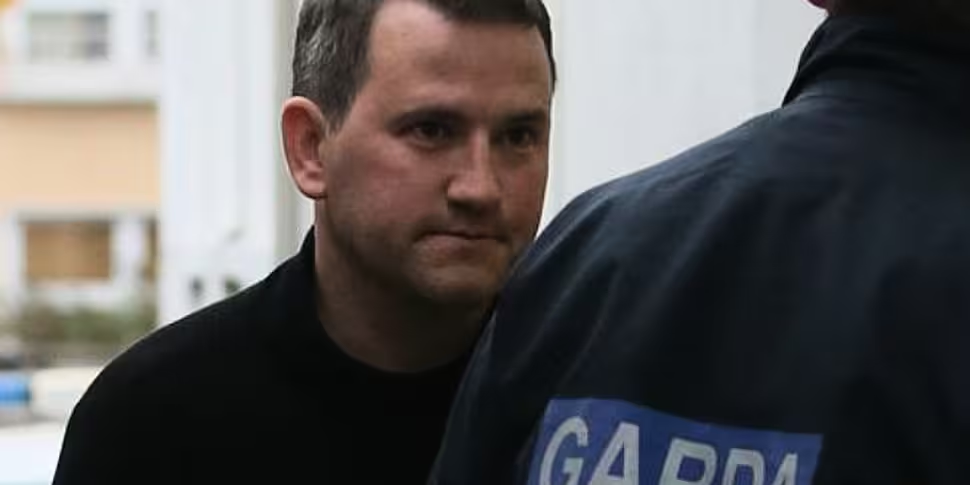Graham Dwyer could have pleaded from the start that Elaine O'Hara died in a dangerous sex game that went wrong. But the architect, who played an active role in his own defence, wanted nothing less than an acquittal.
It was only on day 39 of the trial, when all the evidence had been called, that his lawyers raised the possibility that Elaine O'Hara's death could have been accidental. The matter was discussed in the absence of the jury. Did the knife slip during Elaine O'Hara's BDSM 'punishment' in the woods? Defence counsel Remy Farrell SC wasn't explicit in what he meant by the term 'accident', but he argued that the evidence left it open for the jury to explore. For the first time in the trial, manslaughter was mentioned as a possible verdict.
Was it coincidence that the change of tack came directly after Mr Justice Tony Hunt made his own feelings on the case crystal clear? Again, in the absence of the jury, the judge said he had no doubt that Graham Dwyer was the sinister 'master' who had used 'untraceable' mobile phones to 'bombard' Elaine O'Hara with offensive and violent text messages, repeatedly warning her if she didn't help him kill a woman, she herself would be his target. The judge said the texts show an 'increasing and progressive bloodlust' culminating in the accused asking the childcare worker to meet him at Shanganagh for a pre-arranged stabbing 'in the guts' just hours after her discharge from St Edmundsbury Hospital for psychiatric patients on 22 August 2012.
Mr Justice Hunt said the documents found on the architect's hard drive, 'Killing Darci' and 'Jenny's first rape', were the 'fantastic products of an overactive and very sick mind' and that Graham Dwyer was 'a man perfectly capable of turning violent fantasy into violent reality'.
If this was a wake-up call to the defence, the shift in gear didn't last long. A day later, on instructions from Graham Dwyer, Remy Farrell SC indicated there would be no need for the jury to be charged on a manslaughter verdict. The possibility that Elaine O'Hara's death was an accident was quietly dropped from the case.
Instead, Mr Farrell's closing address focused on Elaine O'Hara's troubled psychiatric history and the possibility of suicide. Much was made of the lack of incriminating forensic evidence, particularly the inability to establish a cause of death based on the 60 to 65 % of her skeletal remains that were found at Killakee in September 2013. The bones that were recovered showed no signs of a knife attack.
In garda interviews following his arrest in October 2013, Graham Dwyer insisted he was not the 'sir' who sent messages to Elaine O'Hara in 2011 and 2012. 'That's not me,' was the architect's mantra when detectives read him some of the texts at Blackrock Garda Station following his arrest on October 17th 2013. "If you ever want to die, promise me I can do it," said one text sent in April 2011. "My urge to rape, stab and kill is huge. You have to help me control or satisfy it," or this one from June 2011: "I want to stick my knife in flesh while sexually aroused... blood turns me on and I'd like to stab a girl to death."
Mr Dwyer exercised his right not to give evidence at his trial.
Texts from Elaine O'Hara's last days alive were recovered from unregistered Nokia phones found at the bottom of Vartry reservoir. They were called the 'master' and 'slave' phones because each only had the other's number saved under the names 'mstr' and 'slv', and they were used almost exclusively to contact the other.
There were 64 messages sent between the reservoir phones on Wednesday, August 22nd, the day of Elaine O'Hara's disappearance. They included plans to meet at the shore by Shanganagh Park, near where she was last seen alive. The 'master' had promised her a punishment, a stabbing in a remote place, for being unavailable to him in hospital.
In his final speech, Mr Farrell suggested to the jury that even if they believed his client was using these secret phones, the messages were just fantasy, along the lines of his story ‘Killing Darci', a graphic, detailed account of filming the killing of an American woman and having sex with her corpse 'all sexy and stabbed' and not, as the prosecution suggested, a 'blueprint' for murder.
But the main defence tactic during the trial was to try and stop the case from ever going to the jury. They tried to block the admission of evidence relating to mobile phone cell site analysis following a 2014 European Court of Justice ruling on data privacy. They challenged the reliability of the methodology used to extract data from Elaine O'Hara's computers and argued that a DNA sample taken from a tub of turtle wax in a bin at Graham Dwyer's home was 'off the books' policing. On day 36 of the trial, Mr Farrell even applied to have the jury discharged because the judge had reportedly glared at the accused and shook his head during the prosecution case, as if to suggest the evidence was damning. All of these efforts came to nothing at trial but will likely feature in any appeal.









